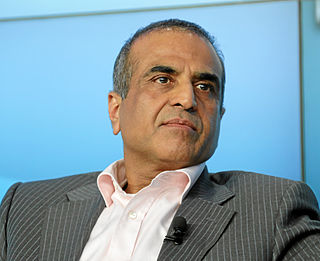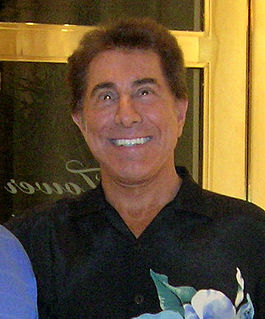A Quote by Sunil Mittal
Technology is something we buy to sell to the customers. Ericsson, Nokia and IBM do technology for a living, so let's give it to them because they know best. It has made the business model of Bharti very, very sustainable.
Related Quotes
Generally, the technology that enables disruption is developed in the companies that are the practitioners of the original technology. That's where the understanding of the technology first comes together. They usually can't commercialize the technology because they have to couple it with the business model innovation, and because they tend to try to take all of their technologies to market through their original business model, somebody else just picks up the technology and changes the world through the business model innovation.
Every disruptive innovation is powered by a simplifying technology, and then the technology has to get embedded in a different kind of a business model. The first two decades of digital computing were characterized by the huge mainframe computers that filled a whole room, and they had to be operated by PhD Computer Scientists. It took the engineers at IBM about four years to design these mainframe computers because there were no rules. It was an intuitive art and just by trial and error and experimentation they would evolve to a computer that worked.
Often, very talented technical people find it extraordinarily difficult to take the viewpoint of customers, who are often ignorant about the technology and who may have strong and perhaps incorrect prejudices about it. The technical people may believe, deep down, that they know better what customers "should" need. Customers, of course, have a different perspective. They want products that will solve customer problems and provide other customer benefits, and will do so without undue risk or cost. Not infrequently, customers view advanced technology itself as a risk.
Of course, technology is very important now. It's there, its available. It's there to be use however you see fit. You can use it and the jihadist can use it. In their case they have been very effective at making use of technology, particularly with websites. It's primarily through these websites that they do their recruiting. But it's not technology that makes them that way.
I believe 3D is inevitable because it's about aligning our entertainment systems to our sensory system. We all have two eyes; we all see the world in 3D. And it's natural for us to want our entertainment in 3D as well. It's just getting the technology - it's really more the business model than the technology piece. We've solved the technology.
What I’m trying to show is that the main event today is not seen by those of us that are living it… So it’s not the effect of [technology], it is that everything exists with-in [its milieu]. It's not that we use technology, we live technology. Technology has become as ubiquitous as the air we breathe, so we are no longer conscious of its presence.
The good things at the U.S. health care system are that we have a well-trained labor force, particularly physicians; I don't think any nation trains doctors better. We have the latest technology, simply because we throw so much money at it. We are really technology-hungry in this country. That's a good thing. Our system more treats patients like customers, which is a good thing; that it's very customer-friendly. And it's very innovative, both in the products we use, in the techniques we use and the organizational structures we use. Those are all very good things, highly competitive.
I have very little respect for the integrity of the trading on the exchange in most stocks. And I have particular disdain for the fact that the SEC has failed to deal with high-frequency traders who are doing nothing more than taking advantage of inside information, a buy or a sell order, because of technology advantages.

































